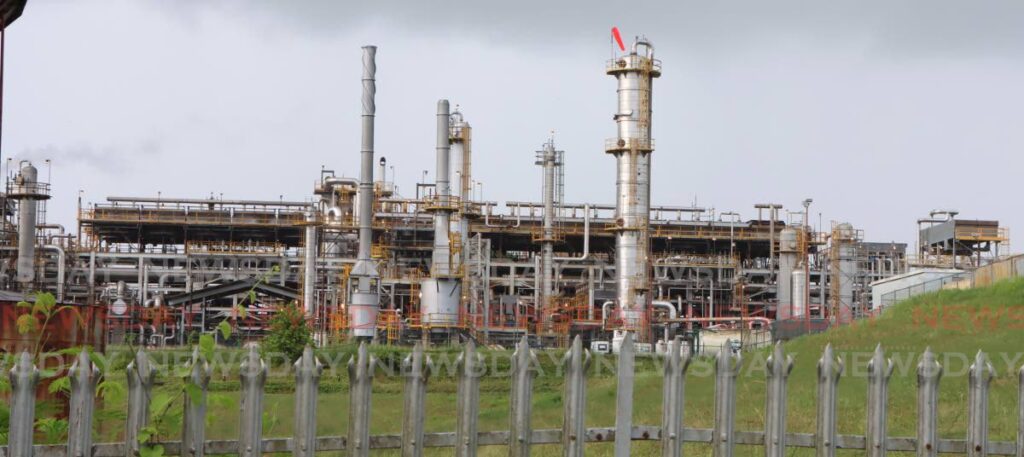Mark wants answers on NiQuan GTL's finances

OPPOSITION Senator Wade Mark has called for a forensic investigation into the finances surrounding NiQuan's involvement in the gas-to-liquids (GTL) plant at Pointe-a-Pierre.
He was speaking at a briefing at the Opposition Leader's office in Port of Spain on Wednesday.
Likening the plant to a sick dog taken to a vet to be put down, he said, "NiQuan has been put to sleep."It has neither natural gas nor permission to run its plant."
The Government last month ended its gas-supply to NiQuan on the heels of unpaid bills and an explosion that killed a worker.
The High Court has refused NiQuan an injunction to force the Government to resume supply, leaving NiQuan to now head to arbitration.
The plant converts natural gas into products like sulphur-free synthetic kerosene, better than contaminant-laced traditional kerosene derived by fractionally-distilling crude oil.
The plant began as a joint venture between World Gas to Liquids (WGTL) Inc and Petrotrin to produce a high quality diesel to blend with the diesel from Petrotrin's refinery and so improve the latter's quality, as an interim step before Petrotrin's intended ultra low sulphur diesel project.
However ballooning costs from US$165 million to US$399 million put it in receivership by 2009, and then Petrotrin ceased its funding.
NiQuan indicated its interest in 2012 and by 2016 had negotiated acquisition for US$35 million (US$10 million paid and US$25 million in preference shares).
Mark told reporters $3.2 billion had gone into "a dream that never materialised."
He publicly called on Finance Minister Colm Imbert to demonstrate that NiQuan had in fact paid US$10 million into the Consolidated Fund.
Mark said, "How come that company got so many concessions from the Government?"
He said NiQuan enjoyed many sweetheart deals, concessions and incentives.
Mark said NiQuan had got a loan of US$120 million, in three tranches, from Republic Bank, part-owned by the people of TT.
"What proper cost-benefit analysis was done to determine the net benefit that will accrue to the people of this country upon releasing these incentives to NiQuan Energy (Trinidad)?"
He said NiQuan paid no VAT under the Fiscal Incentives Act. NiQuan needed to pay no withholding tax, Mark added. He wondered about NiQuan's agreements with WASA and TTEC.
Mark said NiQuan benefited from an off-take agreement to sell all its product at market rates or higher to Paria Fuel Trading Company. He complained of not seeing the gas-supply agreement for NiQuan by a new company, the Upstream-Downstream Company, which he reckoned was undermining the National Gas Company (NGC), hitherto TT's sole middleman between gas-producer and gas-user.
He said, "If NiQuan has been put to sleep and they are unable to meet their outstanding debt – which amounts to what we have seen so far (as) close to US$250 million – if they are unable to meet their debt, what will happen to the loan that Republic Bank advanced to them?"
Saying NiQuan owes the Upstream-Downstream Company some US$19-21 million, he mulled, "Who is going to take the 'bounce'?".
Mulling what might occur if NiQuan won its case at arbitration, Mark said, "We might have to pay NiQuan hundreds of millions of dollars for breach of contract."
Newsday asked about the plant's viability. Mark said the plant was a dream that turned into a nightmare.
"What kind of due diligence did the Government involve itself in?"
He said TT had the hemisphere's first attempted GTL plant, without any successful plant anywhere else in the world for the record.
Alleging the Government had protected NiQuan's interests against that of the people, Mark urged the publication of the report on the accidental death of Massy Energy employee Allanlane Ramkissoon at the NiQuan plant on June 15
The funding for the NiQuan plant was contrasted to the challenges faced by individuals and small businesses to access foreign exchange (forex).
UNC Senator Damian Lyder said the forex crunch was now at its worst within recent years. He urged transparency into the variance in forex allocation between "newly minted monopolies" and small businesses.
He blamed the forex crunch on a collapse in foreign earnings under the Government. Lyder chided Imbert for blaming heavy demand on online buyers and local manufacturers paying for imported raw materials, when instead the senator gave figures to suggest the Government has earned less foreign exchange than prior.
Non-energy exports had fallen from US$704 million in 2015 to US$450 million now, he said.
Lyder declared, "The most pivotal reason we lost foreign exchange was the closure of the Petrotrin refinery." He said the refinery had earned US$350 million annually. Saying 6,000 businesses had closed during the pandemic, with thousands now on the brink of collapse, Lyder said the recent credit card crunch could close many.


Comments
"Mark wants answers on NiQuan GTL’s finances"